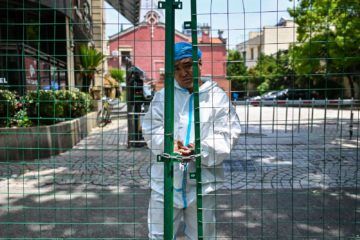Eli Friedman in the Boston Review:
 With or without the COVID-19 pandemic, China has maintained a greater capacity to control the internal movement of its population than perhaps any other country in the world. This is primarily enforced through the household registration system (hukou) which has linked the provision of social services to regional locales since 1958. Under Deng Xiaoping, China set about constructing a national labor market, which today allows citizens to enjoy the narrow market freedom to seek employment throughout the country. But social citizenship, including access to state subsidized health care, education, pensions, and housing, is structured at the level of the city.
With or without the COVID-19 pandemic, China has maintained a greater capacity to control the internal movement of its population than perhaps any other country in the world. This is primarily enforced through the household registration system (hukou) which has linked the provision of social services to regional locales since 1958. Under Deng Xiaoping, China set about constructing a national labor market, which today allows citizens to enjoy the narrow market freedom to seek employment throughout the country. But social citizenship, including access to state subsidized health care, education, pensions, and housing, is structured at the level of the city.
In recent years the central government has promoted a technocratic biopolitics that aims to specifically distribute people, in just the right qualities and quantities, within a complex socio-spatial hierarchy of cities and regions. This “just-in-time urbanization” is meant to pull elite talents into elite cities and push the “low-end population” to low-end places.
More here.
